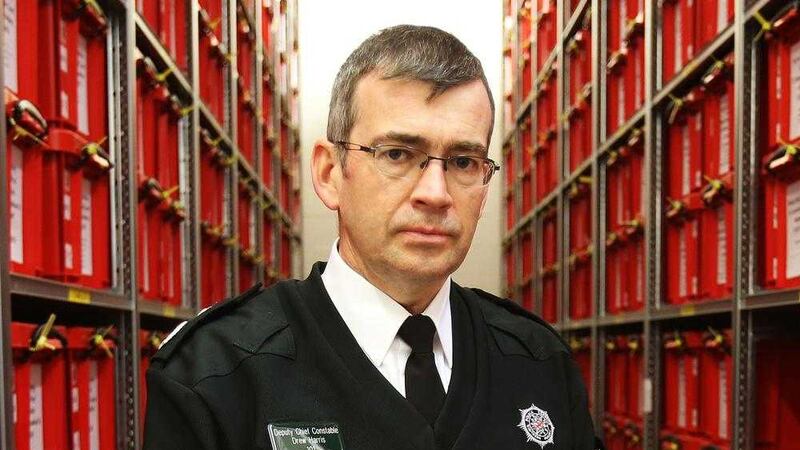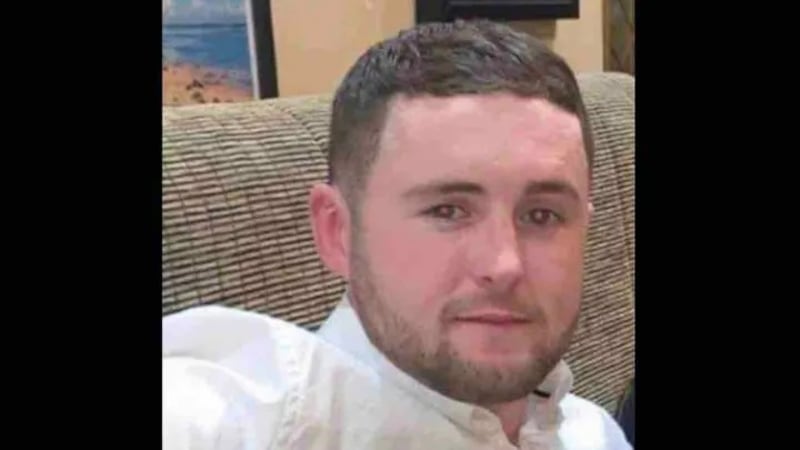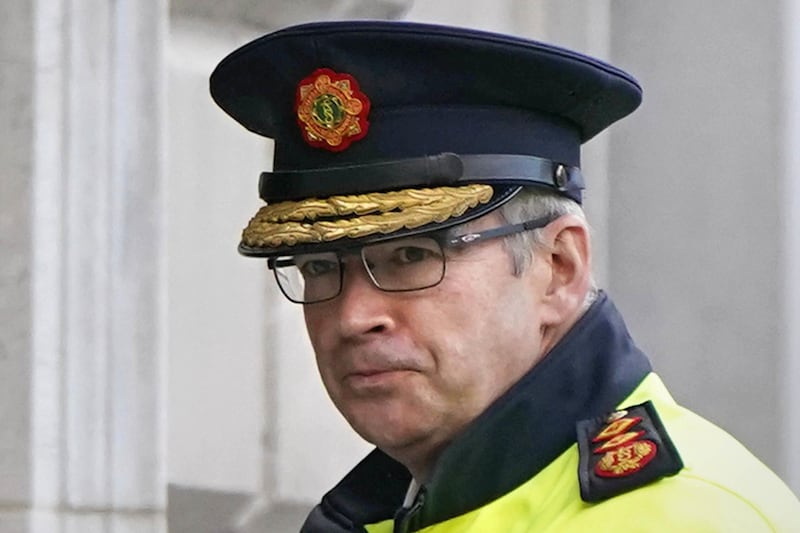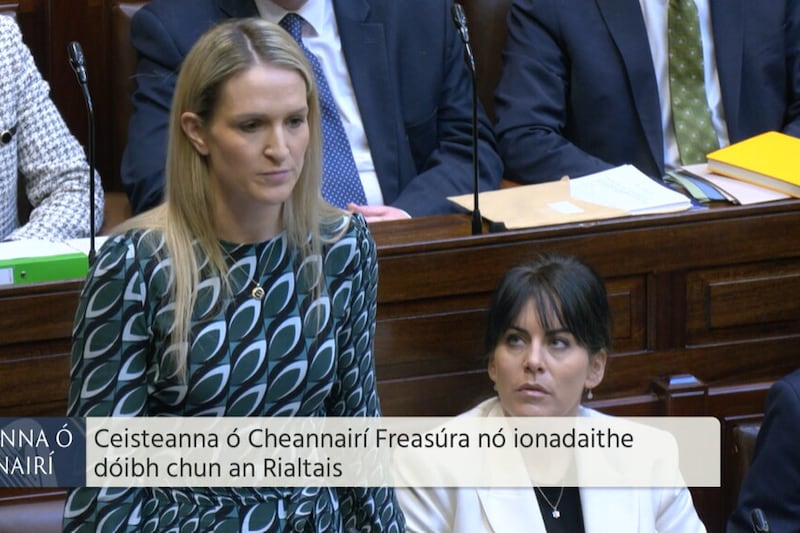Outstanding inquests for a series of contentious Troubles killings could take decades to hear unless radical changes are made to the current legal process, a senior police officer has warned.
PSNI Deputy Chief Constable Drew Harris was speaking ahead of a major review exercise beginning today of the 56 legacy cases still in the system, almost half of which date back more than 40 years.
Mr Harris, who granted rare access to the police's secure murder file archive to highlight the challenge of handling millions of historical case papers, said it was "almost impossible" to put a time-frame on completion.
"You are talking in decades really, not in years," he said.
Lord Chief Justice Sir Declan Morgan has asked one of his senior judges to preside over an intensive two-week long schedule of individual hearings to establish why progress has been painfully slow to date.
The 56 cases include killings carried out by both paramilitaries and security forces - many involve claims of collusion or state wrongdoing.
High-profile Troubles deaths such as the Ballymurphy shootings by the British army in 1971, the security forces' "shoot to kill" deaths in the 1980s and the killing of Co Derry GAA official Sean Brown by the LVF in 1997 are among inquests yet to be heard.
Sir Declan, who took over presidency of the Coroners' Court last November, has acknowledged the system is "not fit for purpose", highlighting that only 13 legacy cases have been heard in 10 years. Only three have been heard since 2012.
A failure by politicians to sign off on proposed mechanisms to deal with the past past means initiatives to better deal with legacy cases, including more support for the Coroners' Service, have yet to get off the ground.
One of the recurring problems besetting the current coronial approach is the length of time it takes police to disclose classified case papers to the next of kin - in some cases this security-vetting process has been ongoing for many years.
Prior to the start of the review hearings in Belfast today before Lord Justice Weir, Mr Harris insisted the blame lay less with police and more with the overall approach.
In particular, he said trying to run multiple cases at once, rather than sequencing them, meant the 20-plus staff in the PSNI's Legacy Support Unit (LSU) were caught in a constant cycle of shifting from one caseload to another.
"There is no process of sequencing," he said. "It means the staff we have here, the limited numbers, are jumping from where the demand is greatest, from one case to another, without ever really finishing anything."
The LSU has so far security-vetted more than 130,000 individual pages for legacy inquests.
The unit's legally-trained staff access the files from within the eight stores of the PSNI's murder archive.
The secure climate-controlled rooms contain millions of documents, packed away in more than 22,000 boxes. The oldest murder case in storage dates back to 1952.
The PSNI has previously defended the length of time taken to release information to inquests as well as recruitment to the LSU.
Mr Harris said the process of assessing each legacy inquest's cases files for potential redactions - on the grounds of risk to life, privacy or potential damage to the public interest - was time-consuming and arduous. The PSNI is legally obliged to carry out the redaction process on behalf of the coroner.
He stressed that as well as the 56 legacy inquests, the LSU was also working on disclosure related to 70 ongoing High Court cases, either compensation claims or judicial reviews.
The commander said the PSNI was also unable to divert more resources to the task from within its current dwindling front-line budget.
"We are constantly having to make difficult choices about our budget and it has to be said our primary focus is around protecting people today," he said.
If political agreement is reached and additional support is given to the Coroners' Service, Mr Harris said the LSU should also receive extra funding to help it keep pace with the improved inquest capacity.
"We would make a strong case (for funding) around our part of this, which is around handling the materials for the purpose of disclosure," he said.
Mr Harris said the current impasse over legacy mechanisms also meant the almost 1,000 unsolved murder cases destined for review by the proposed independent Historical Investigations Unit (HIU) were left in limbo.
"There are 939 reviews sitting, in effect, untouched," he warned.
Sir Declan has said the two-week exercise by Lord Justice Weir will provide an opportunity to consider afresh the options for dealing with outstanding legacy issues.
He has suggested one potential solution could be the establishment of a form of inquiry panel to hear all the cases, much like Northern Ireland's on-going child abuse probe - the Historical Institutional Abuse inquiry.
But the north's top judge has acknowledged such a change of approach will only happen with political consensus.








